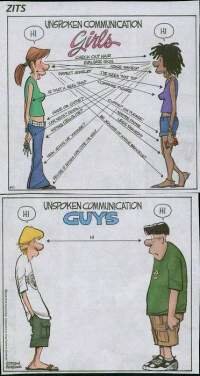|
|
||
There are plenty of ways to save money on gas, but the most effective way is to actually reduce the amount of gas you use. When we find we must use the car to reach our destination.


Other tricks


- Drive at the speed limit. This is the single most effectivesolution to increasing efficiency. The most fuel-efficient speed may bethe point at which your vehicle shifts to high gear. For most vehicles,this is somewhere around 50mph.
- Try to avoid traffic on busy days or times when it is raining,windy or barometric pressure is high. Rain and high barometric pressurecreate extra air drag that uses more fuel to create and maintainforward motion.
- Get rid of any unnecessary weight in your car or truck like golfclubs or unnecessary tools and materials. Lowering your tailgate onpickup trucks actually reduces your gas mileage. Studies have shownthat an air cushion is created behind the cab that creates a low dragsurface for the air to travel over.
- Avoid tailgating and using your brakes to continually correct yourfollowing distance. People often "ride" their brakes for no apparentreason. This slows forward motion, converting it into heat energy andgreatly reduces the service life of your brakes. You then waste fuelregaining the lost speed. In the future most cars may be equipped withsystems in which braking power will be converted into reusable energy,but it is highly unlikely that your car has this technology now unlessit is a hybrid.
- Every time you punch the gas to quickly accelerate after stoppingyou are burning extra fuel and increasing tire wear. By acceleratingslowly you are only using the fuel required to get the vehicle to speed.
- Drive smoothly. It increases fuel consumption when you allow thevehicle speed to drift lower and then accelerate back up than it doesto maintain a steady position on the accelerator. Allowing the car tolose speed going up hills and gain speed going down increasesefficiency.
- Change your air filter. A dirty air filter will rob the engine ofpower and efficiency. It will use more gas than a clean filter.
- Keep the tires inflated to the proper pressure.Keep a tire gauge handy and be sure to check your tire pressure moreoften when the outside temperature changes greatly. Having properlyinflated tires significantly increases your traveling distance on atank of gas. Under inflated and greatly over sized tires have morerolling resistance and this will reduce your miles per gallon (MPG).
- Tune-Up at manufacturer recommended intervals, changing sparkplugs, wires, and coil if needed. The better your engine runs the morepower it will produce using less fuel.
- Use synthetic oil in your car to save an average of 5% on fuelconsumption. As a bonus, fewer oil changes are needed saving your timeand reducing trips to the mechanic as well as less used oil in theenvironment.
- Listen to relaxing music. When listening to energetic music, yourheart rate may increase, making you accelerate harder, speed, and doother things that are not good on your fuel economy.
- Avoid excessive idling. If you idle your car for more than aminute, it will save gas to turn off the engine. Also, new cars do notneed to be "warmed up" on a cold winter day - a couple of secondsshould do the trick.

Other tricks
- Keeping your car tuned up will optimize your mpg.
- Visit a site like optimizeMPG,which is dedicated to teaching you how to save money on gas withalternative fuels, basic mechanic tips, and better driving practices,or MPGPlus which offers more tips to improve your fuel economy.
- Join a Gas Saving community,where you will be able to learn from other gas savers, how you caneasily tune your ordinary car for better mpg performance
- Keep your tires on your vehicle properly inflated at all times.
- Be careful with the fuel brand you use. All gasoline is not thesame and different engines may respond better to different fuels.
- Keep track of your fuel economy so you can quickly identify whenyour vehicle is in need of a tune-up or other service. Three or fourconsecutive tanks showing poor fuel economy may be an indicator ofneeded maintenance.
- Reduce the number of times you have to drive by thinking ahead. Forexample, buy non-perishable necessities (including pet food, toiletneeds, groceries etc) in bulk so you don’t have to make a special tripfor a few items and try to consolidate errands and appointments.
- Walk or bicycle to your destination, if reasonable.
- Make sure to wear clothing appropriate for the weather - it makesthe car ride feel better, and you won’t have to rely on the heater orair conditioner as much, both of which use more gas.








